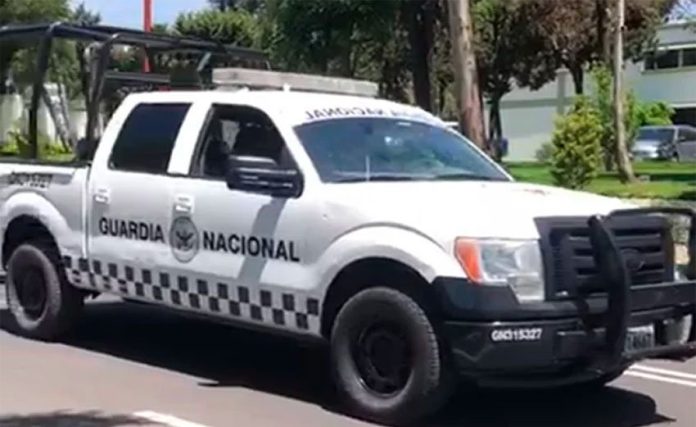The federal government will start deploying 1,800 National Guard troops to five crime-plagued Mexico City boroughs on July 1, the security secretary announced.
Alfonso Durazo said yesterday the guardsmen will carry out operations in Iztapalapa, Gustavo A. Madero, Tlalpan, Xochimilco and Tláhuac.
Sprawling, densely-populated Iztapalapa, located in in the east of the city, and Gustavo A. Madero, in the extreme north, are the first and second most dangerous boroughs in the capital, according to a recent criminal analysis completed by law enforcement authorities in Mexico City.
Units of 450 troops will be deployed to four of the five boroughs with Xochimilco to be patrolled by guardsmen based in neighboring Tlalpan.
The National Guard will collaborate with Mexico City police to combat high-impact crimes such as homicides, kidnappings and robberies.
Durazo said the first deployment will patrol areas of Iztapalapa, Gustavo A. Madero and Tláhuac that border México state.
“In the first stage, the National Guard in coordination with the Mexico City government will only attend to three boroughs in their peripheral part adjacent to México state, which are the most densely populated and have the highest crime rates,” he said.
The Mexico City Attorney General’s Office (PGJ) said this month that a lot of murders and other crime occurs on the outskirts of the capital, where criminals can easily move into neighboring México state and escape the jurisdiction of the capital’s police force.
Announcing the Mexico City deployment of the National Guard at his morning press conference yesterday, President López Obrador noted that crime rates in the capital are on the rise, “especially homicide, which has risen from two to six a day.”
The new security force is eventually expected to be deployed to all 16 boroughs in the capital even though none were identified by the federal government as priority regions.
However, López Obrador said that organized crime groups have arrived in the capital because the previous Mexico City government allowed them “to put down roots.”
“At first, we thought that sending the National Guard wouldn’t be necessary, but because of the situation, the mayor agreed that the National Guard will be deployed to all of Mexico City,” he said.
“A greater presence of elements and greater protection for the citizens of the capital are needed.”
The PGJ criminal analysis said the Jalisco New Generation Cartel – Mexico’s most powerful criminal organization – has started operating in Iztapalapa, Tláhuac, Tlalpan and Gustavo A. Madero, while the Tláhuac Cartel continues to operate in the borough of the same name.
In addition to the escalating murder rate, kidnappings and robberies of businesses have soared since Mayor Claudia Sheinbaum took office last December.
The national murder rate also remains stubbornly high, with 2,476 homicides in May, the highest number of any month this year.
The day before the National Guard begins operations in Mexico City, 52,000 troops of the new security force will be deployed to 150 hot spots around the country, Security Secretary Durazo announced last week.
Source: El Universal (sp)
